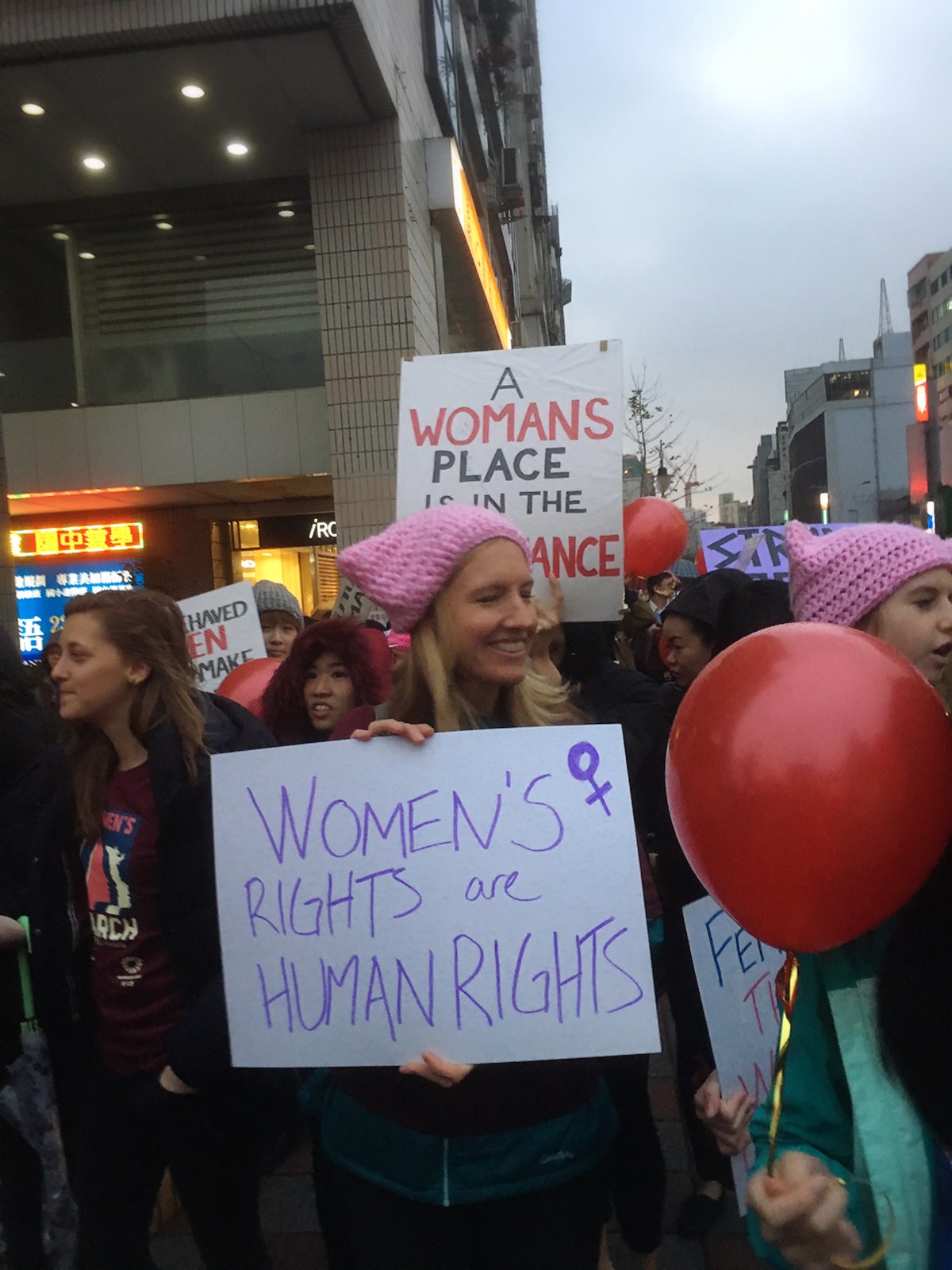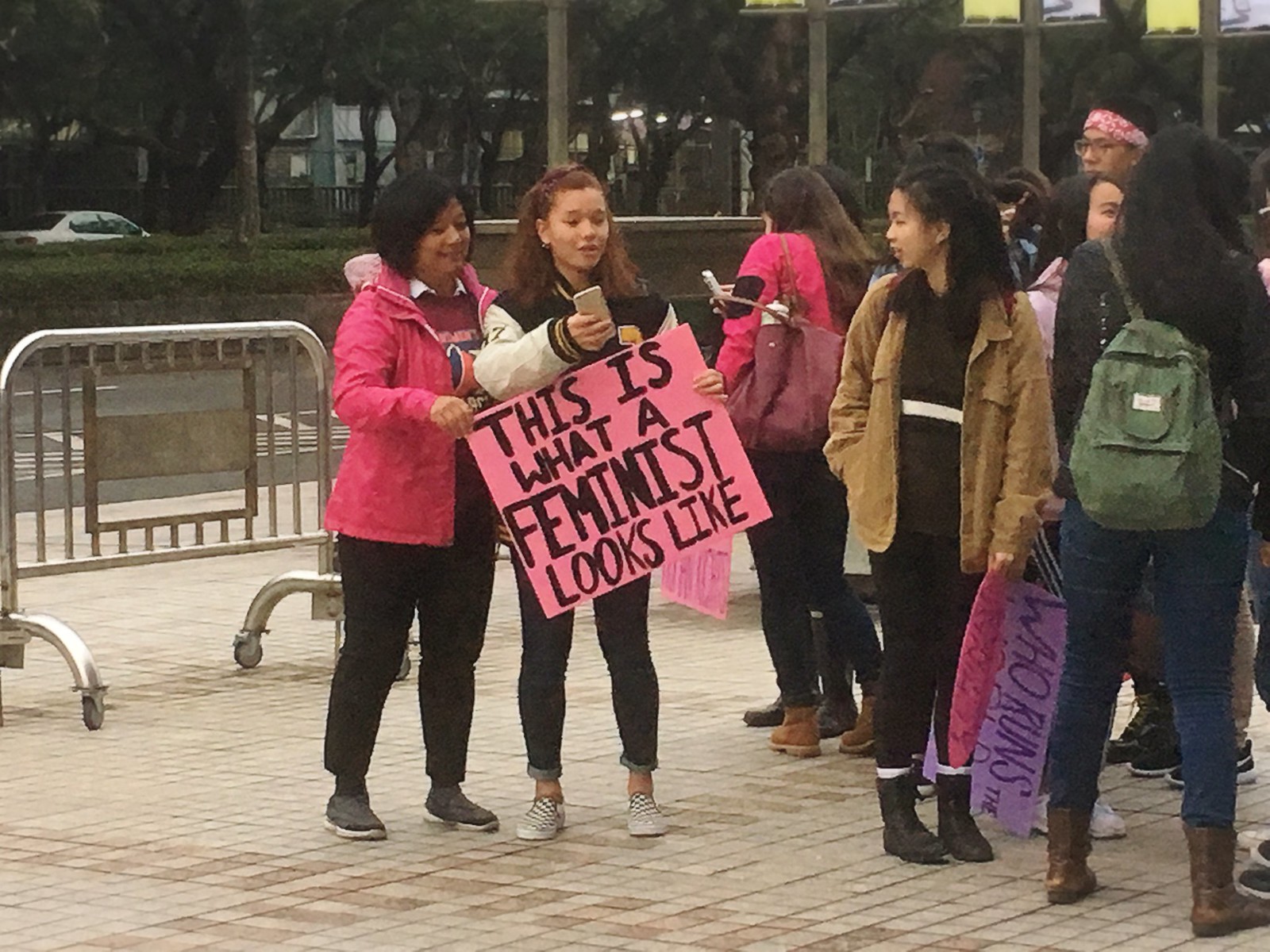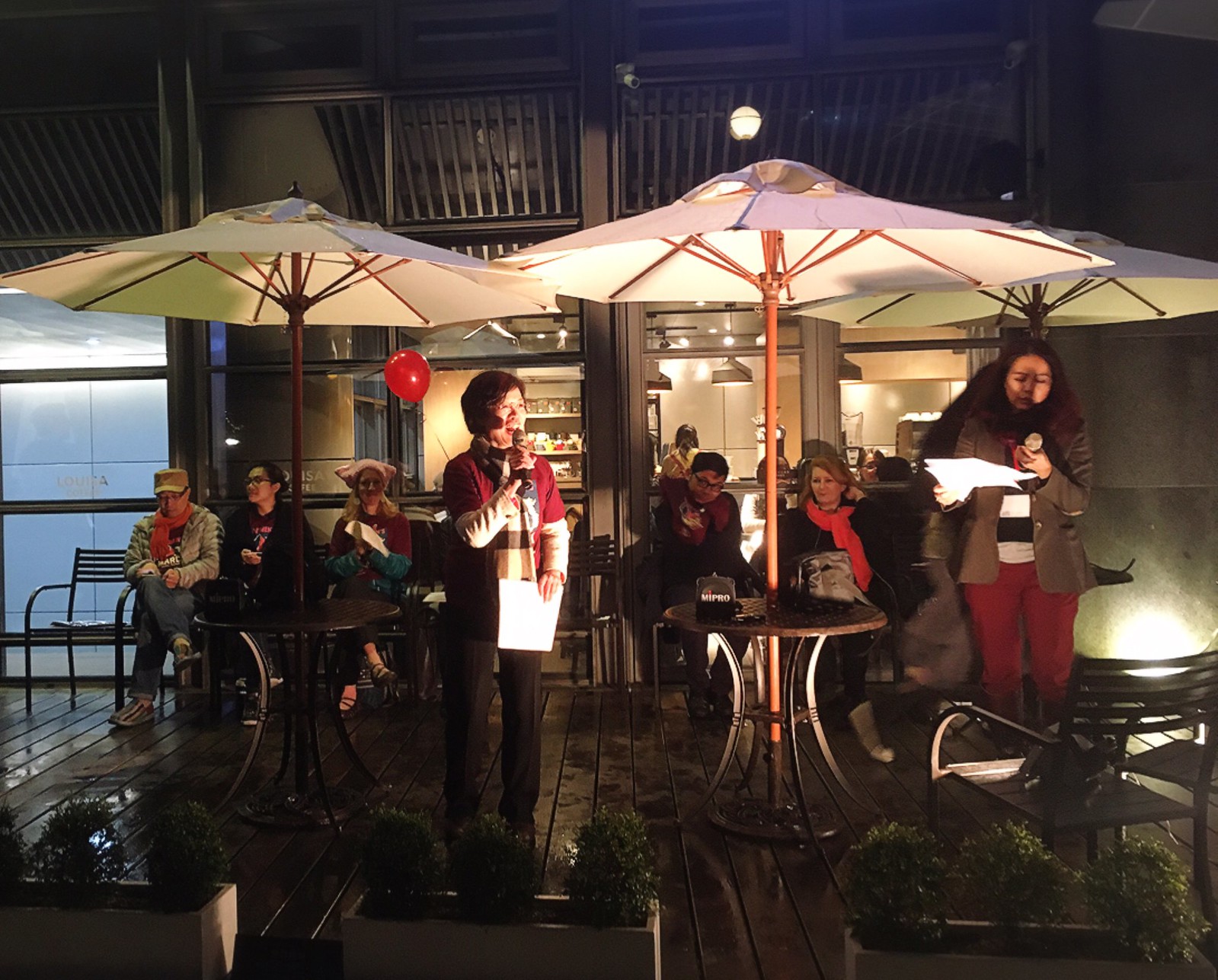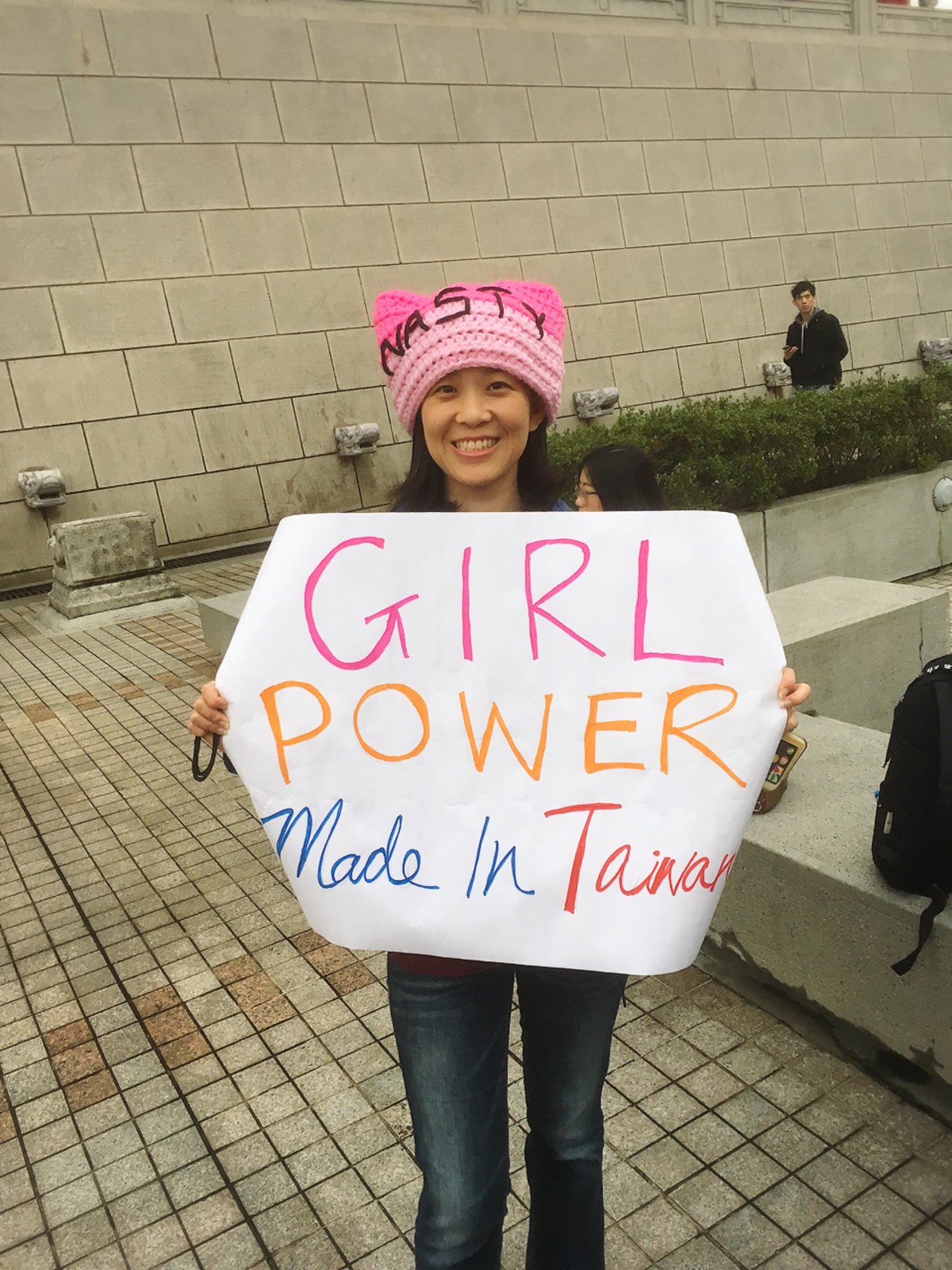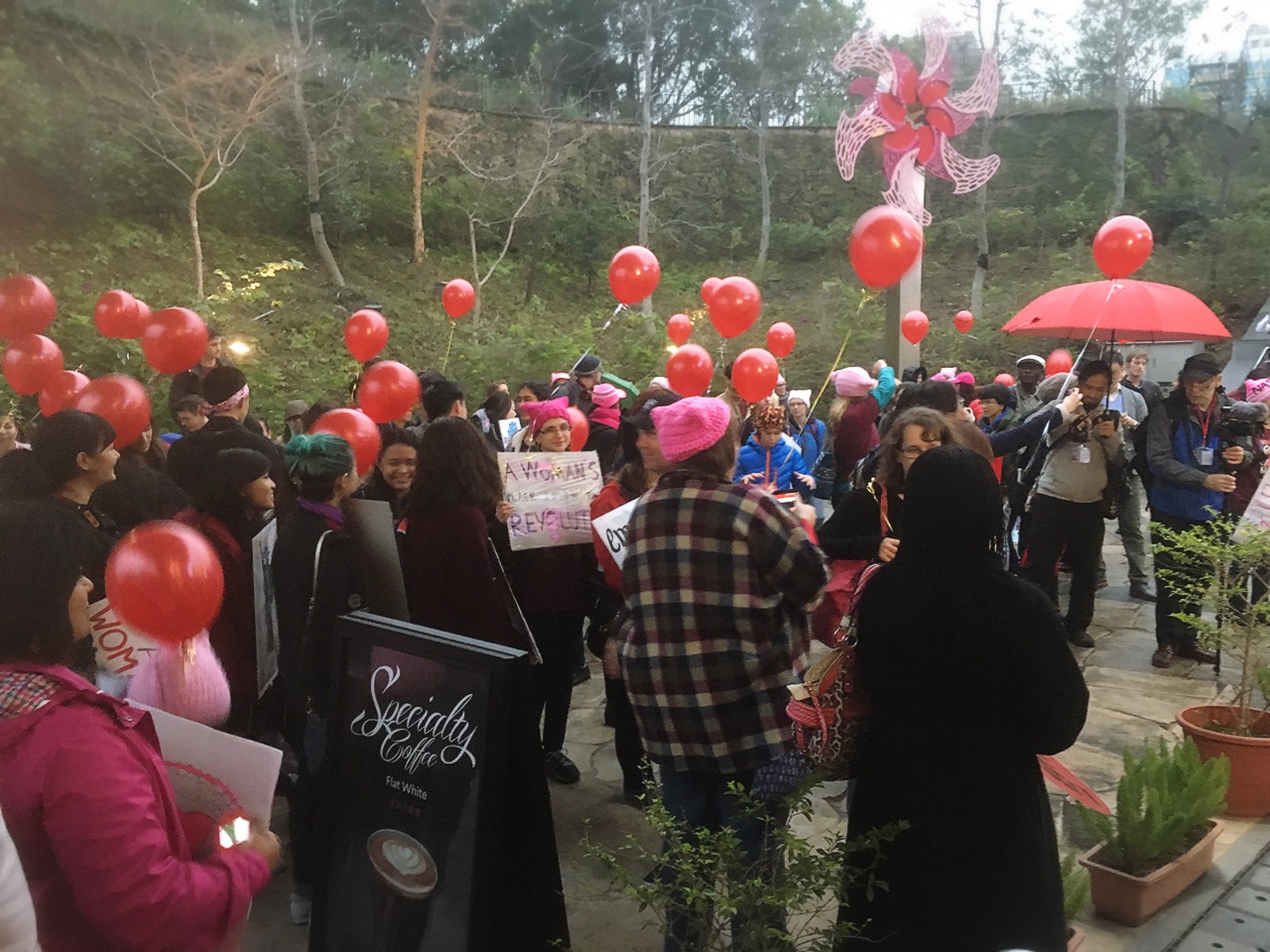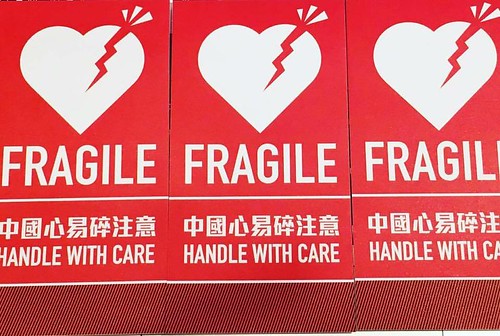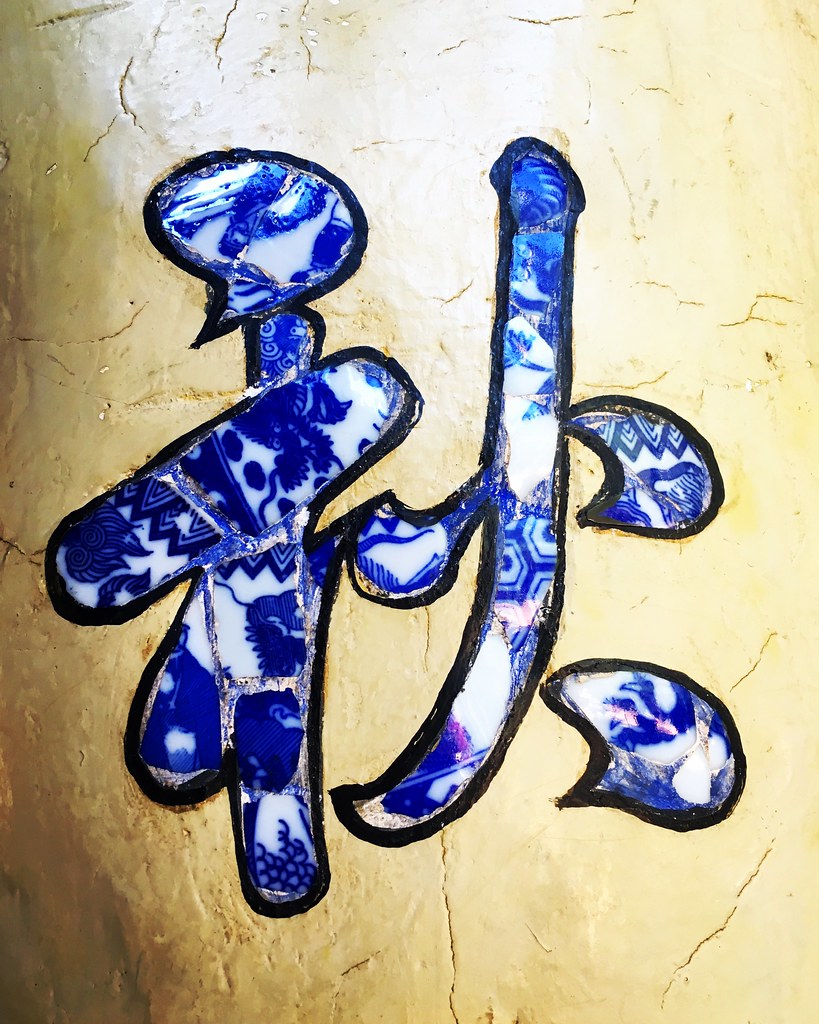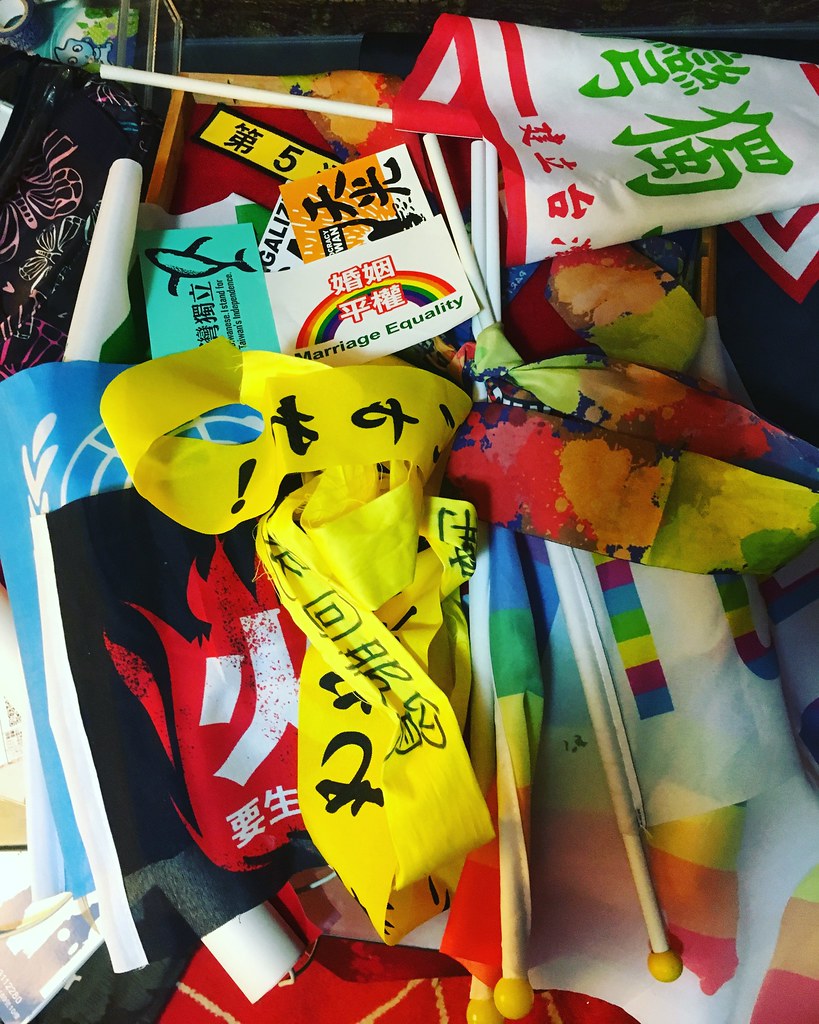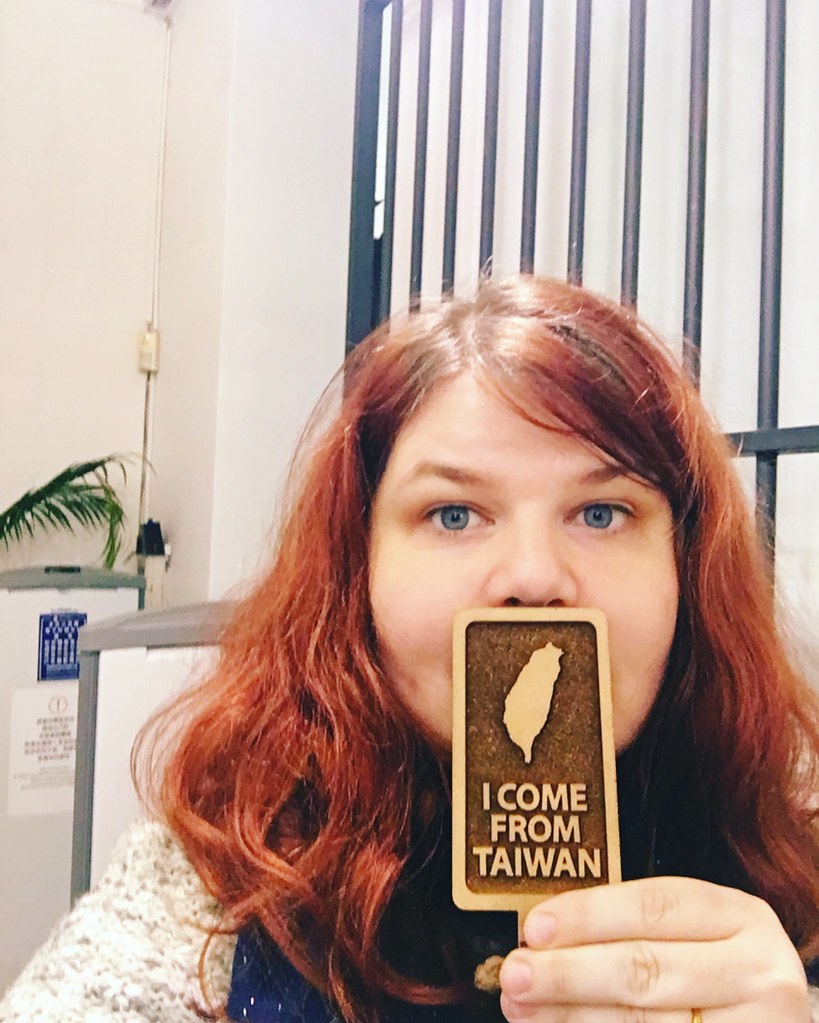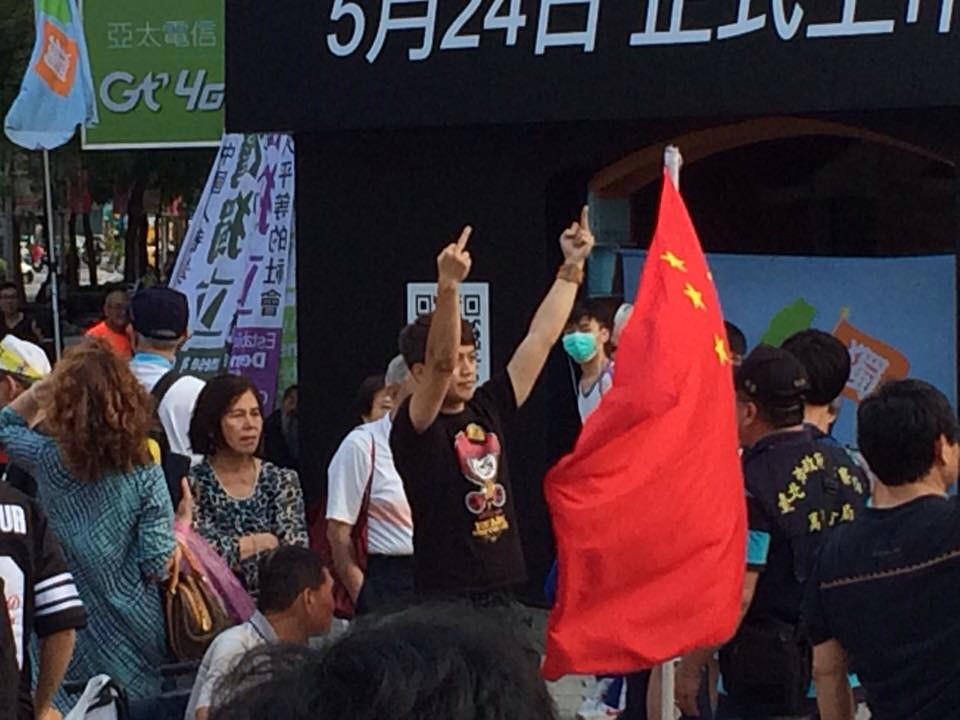
Awhile back, I ran into those odious but seemingly-legal pro-unification protesters that sometimes pop up at major Taipei landmarks. Imade the case that, as strongly as I disagreed with their views and goals, that as Taiwanese citizens they had the right to protest. I find it ironic that they have been protesting in support of Taiwan being unified against its will with a country that would immediately take away their right to protest, but they still had, I argued, the right to protest. Their ironic goals make them stupid, but don't negate their rights.
I want to take that back. I no longer feel they should be allowed
to demonstrate.
This is not because I vehemently disagree with their views (though I do). I
disagree with lots of people, but it doesn't mean they don't have the same
rights I enjoy. It is not even because what they essentially advocate is the
termination of the existence of the nation they live in: if Taiwan were to
democratically decide to unify with China, I wouldn't like it one bit (I'd
probably sob for days), but there wouldn't be much I could say about it if the
vote was fair and not done under threat. A nation can, in theory, vote to
terminate its own existence. I don't even feel this way because their views are
so out of line with the vast majority of Taiwanese - they would still have the
right to voice them through legal protest.
No - they should not be allowed to demonstrate for a few key reasons, none of which go against the basic rights of freedom of speech and expression that I believe in.
The first is that they are one of the few protest groups whose violence is internal.
No - they should not be allowed to demonstrate for a few key reasons, none of which go against the basic rights of freedom of speech and expression that I believe in.
The first is that they are one of the few protest groups whose violence is internal.
Violence sometimes erupts even at peaceful protests - which the vast majority of protests are in both intention and execution - for what I have observed are three reasons (says this person who is not an expert in social movements or protest). The first is because law enforcement or some other force is pushing back on them in a way that begets violence. Even if your intentions are peaceful, if the police (or some other group) are coming at you with clubs, mace, smoke bombs and water cannons, or trying to keep you from exercising your right to protest through aggressively breaking up groups or fencing them in, it's easy for what is intended to be a peaceful demonstration to get out of control. The second is when an outside group or force - perhaps loosely in agreement with the protesting group, perhaps in opposition to it - intentionally steps in to sow a bit of chaos. This is what often happens in Taiwan and Hong Kong when gangsters, in the employ of other forces, try to incite violence by aggressively bullying peaceful demonstrators. The third is when the injustice set upon an aggrieved community is so great that people just snap.
None of the reasons above is cause to dismiss the idea of peaceful demonstration.
However, there are also groups who use aggression and violence as a tactic - as above, their violence is internal. Perhaps they do it to create fear among another group (anti-abortion protesters do this, to the point that some women feel unsafe going to a women's health clinic - and that's the point). Perhaps they are in the employ of someone who wants to discredit the idea of protesting at all. Or, perhaps it is simply to anger others into striking back, or simply to get media attention.
The pro-China protests in Taiwan cannot be classified as one where violence is brought in by outside forces. They are one of the ones for whom it is a tactic - most likely for media attention. They need it - there are only, what, five of them? They have been aggressive and will continue to be aggressive because it is intrinsic to their goals to do so, not because law enforcement, gangsters with dubious motives or the righteous anger of deep injustice. They were given several chances to stop the violence and protest peacefully, yet they persisted.
Update: apparently the most recent video of protest violence is not of this group but of another gangster-led pro-unification group. Still, my point stands - they're not going to demonstrate peacefully because nobody will pay attention to them if they do, so it's time to stop them for good. Freedom of speech does not mean the freedom to be violent. They had their chance, and now they need to go.
Even when they are not physically violent, they purposely skirt noise ordinances: there is no way their Musical China Douchemobile is within the legally allowed decibel level for...whatever it is they are doing. Blasting pro-China opera songs? Yet it's difficult to stop them because they are hard to report when they keep driving around.
None of the reasons above is cause to dismiss the idea of peaceful demonstration.
However, there are also groups who use aggression and violence as a tactic - as above, their violence is internal. Perhaps they do it to create fear among another group (anti-abortion protesters do this, to the point that some women feel unsafe going to a women's health clinic - and that's the point). Perhaps they are in the employ of someone who wants to discredit the idea of protesting at all. Or, perhaps it is simply to anger others into striking back, or simply to get media attention.
The pro-China protests in Taiwan cannot be classified as one where violence is brought in by outside forces. They are one of the ones for whom it is a tactic - most likely for media attention. They need it - there are only, what, five of them? They have been aggressive and will continue to be aggressive because it is intrinsic to their goals to do so, not because law enforcement, gangsters with dubious motives or the righteous anger of deep injustice. They were given several chances to stop the violence and protest peacefully, yet they persisted.
Update: apparently the most recent video of protest violence is not of this group but of another gangster-led pro-unification group. Still, my point stands - they're not going to demonstrate peacefully because nobody will pay attention to them if they do, so it's time to stop them for good. Freedom of speech does not mean the freedom to be violent. They had their chance, and now they need to go.
Even when they are not physically violent, they purposely skirt noise ordinances: there is no way their Musical China Douchemobile is within the legally allowed decibel level for...whatever it is they are doing. Blasting pro-China opera songs? Yet it's difficult to stop them because they are hard to report when they keep driving around.
Another reason why they ought to be stopped? Because I am no longer convinced that they are simply private citizens with a strongly held opinion demonstrating for what they believe in. I am sure there are a few sincere pro-unificationists running around Taiwan: every society has its extremists. However, I truly don't believe that this group is so sincere. Given how common it is for pro-China, anti-localist and anti-self-determination protesters in Taiwan and Hong Kong to have ties back to gangs who, in turn, have ties back to government (it seems to usually be the Chinese government, but I wouldn't put it past some of the more radical deep blue factions of the Taiwanese government to do this too), it is not crazy to think these guys might also be paid PRC stooges, too. If - and this is a big if, but I think a plausible one - the PRC has something to do with the little show they put on at various high-traffic sites around the city, then that amounts to a foreign government sticking its hands into Taiwanese affairs. Governments do this all the time, but that doesn't mean it should be tolerated.
It also calls into question exactly who the police are listening to when they cordon off or act aggressively toward peaceful protesters (harassing the indigenous rights protesters at night, or isolating peaceful marriage equality demonstrators), but allow this group to start fights unchecked until the mayor steps in (and similarly do little to stop anti-marriage-equality protesters, blue-camp-aligned protesters or actions by groups organized by known gangsters such as White Wolf).
This is quite similar to my reasoning behind supporting laws that do not allow non-residents to participate in protests or demonstrations beyond observation: if we allowed it, thousands of paid Chinese "protesters" would be on the next flights over from China, marching in the streets for unification. Stopping that may mean that some well-meaning people who don't have the right visa can't engage, but I find this a reasonable price to pay.
The final reason why I think it's time to pull the plug on this group is related to the point above. I do not think they are sincere because they don't seem that concerned about actually convincing anybody. That's good in one sense, because if they were, they'd be failing. It raises the question, though, of who exactly they are protesting for. My best guess - and a lot of my friends agree - is that they're doing it to create good photo ops in China. Perhaps for a time they were there to put on a show for Chinese tourists streaming into Taipei 101 - look, we were right, our Chinese brothers across the strait do want to be a part of China, you can see them protesting for it against their evil government right here! - but those are basically gone now. Now, I'd put money on it being done for photo ops that can be strategically placed in Chinese media.
In short, they're not there to convince Taiwanese. They're there to make Taiwanese society seem more divided on the issue than it really is (as it's not actually that divided at all).
Freedom of speech and assembly comes with some basic assumptions: that you are acting of your own accord and not in someone else's shadowy employ; that your motives are sincere and your goals genuine; that you are not a part of some foreign government's strategy and that your intentions are non-violent.
This doesn't mean I think we should ban all pro-China or pro-unification protests. Not even close - as much as I disagree with it, the actual viewpoint being expressed is not the problem. My problem is with this particular group.
While it's difficult to say for sure, my honest opinion is that these specific pro-China protesters meet none of these standards. In such a case, I truly do not believe it violates the basic right to freedom of expression to stop allowing them to demonstrate.
The chances of the Taiwanese government investigating, let alone doing something about this?
Most likely zero. I'd love to be proven wrong.
I suppose we can look forward to them blasting music and pushing us around for awhile yet.
It also calls into question exactly who the police are listening to when they cordon off or act aggressively toward peaceful protesters (harassing the indigenous rights protesters at night, or isolating peaceful marriage equality demonstrators), but allow this group to start fights unchecked until the mayor steps in (and similarly do little to stop anti-marriage-equality protesters, blue-camp-aligned protesters or actions by groups organized by known gangsters such as White Wolf).
This is quite similar to my reasoning behind supporting laws that do not allow non-residents to participate in protests or demonstrations beyond observation: if we allowed it, thousands of paid Chinese "protesters" would be on the next flights over from China, marching in the streets for unification. Stopping that may mean that some well-meaning people who don't have the right visa can't engage, but I find this a reasonable price to pay.
The final reason why I think it's time to pull the plug on this group is related to the point above. I do not think they are sincere because they don't seem that concerned about actually convincing anybody. That's good in one sense, because if they were, they'd be failing. It raises the question, though, of who exactly they are protesting for. My best guess - and a lot of my friends agree - is that they're doing it to create good photo ops in China. Perhaps for a time they were there to put on a show for Chinese tourists streaming into Taipei 101 - look, we were right, our Chinese brothers across the strait do want to be a part of China, you can see them protesting for it against their evil government right here! - but those are basically gone now. Now, I'd put money on it being done for photo ops that can be strategically placed in Chinese media.
In short, they're not there to convince Taiwanese. They're there to make Taiwanese society seem more divided on the issue than it really is (as it's not actually that divided at all).
Freedom of speech and assembly comes with some basic assumptions: that you are acting of your own accord and not in someone else's shadowy employ; that your motives are sincere and your goals genuine; that you are not a part of some foreign government's strategy and that your intentions are non-violent.
This doesn't mean I think we should ban all pro-China or pro-unification protests. Not even close - as much as I disagree with it, the actual viewpoint being expressed is not the problem. My problem is with this particular group.
While it's difficult to say for sure, my honest opinion is that these specific pro-China protesters meet none of these standards. In such a case, I truly do not believe it violates the basic right to freedom of expression to stop allowing them to demonstrate.
The chances of the Taiwanese government investigating, let alone doing something about this?
Most likely zero. I'd love to be proven wrong.
I suppose we can look forward to them blasting music and pushing us around for awhile yet.

